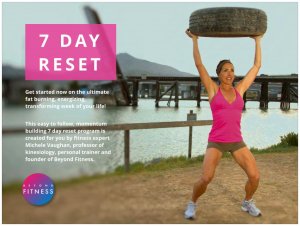Here’s a few weight loss mistakes that are super easy for you to correct.
No judgment, no guilt
Food journaling is one of the most powerful things one can do to reach your healthy eating goals. The act of writing in black and white makes you more aware of what you put into your mouth. It also helps us to see our eating patterns and habits. It will also reinforce your new healthy habits and keep you on track to produce long-term change.
Journaling is not about judging yourself or feeling guilty. Remember that successful businesses take inventories regularly. A list includes both what is there and what is missing. Journaling should consist of what, when, and how much. You don’t have to measure exact portions with a scale. You can use your fist, your thumb, or a tennis ball size. If you want to get more sophisticated, you can use an app, website, notebook, or computer. Some people also include thoughts, feelings, and emotions before and after eating, eating, and their hunger and satiation level.
For accuracy, It is essential to record right after you eat and not wait. After you complete your intake, reflect on the information. Look for habits you would like to change as well as new ones you would like to add. Adding new patterns works best when we do them in small increments, and they tend to be more sustainable.
Here are a few suggestions that might help you kickstart your healthy eating:
- Have a fruit or vegetable at every meal and snack.
- Eat with friends and family, away from screens like phone, computer or TV.
- Eat slowly, taking time to taste the food, eating until satisfied, not stuffed.
- Eat regularly, avoid skipping or delaying meals.
- Plan your meals.
- Make meals you enjoy.
- Cook and eat at home.
- Put healthy snacks in easy reach.
- Keep a bowl of fresh fruit on your dinner table or counter.
- Serve water with meals
- Eat a balanced breakfast that includes a good source of protein.
Poor sleeping habits
There are numerous reports about how Covid-19 has disrupted our standard sleep patterns, which affect our moods, daily activities, overeating, and lack of physical exercise. In your journaling, you can also add notes about the amount and quality of your sleep, observe those patterns along with your food intake.
Getting enough quality sleep is one of the most important things we can do to take care of our physical and mental health during Covid-19 and beyond.
- Go to bed and wake up on a regular schedule.
- Keep screens out of the bedroom.
- Keep the bedroom dark.
- Engage in meditation or breathing exercises before bed.
- Stop eating two hours before bedtime.
Starving yourself
Unfortunately, there is a myth that to lose weight; we must starve ourselves and workout like a mad person. That is so far from the truth, and it backfires. Not only are they both not sustainable, but they are also harmful to our bodies. We need to eat and exercise regularly. Our bodies need valuable nutrients to function. Our metabolism slows down when we starve ourselves, and then we gain weight instead of losing it. The healthier, more sustainable habit is to eat smaller meals throughout the day, workout, and then you will see the weight come off.
Not being consistent
Consistency is one of the most critical aspects of successful people; people trying to lose weight. Studies show slow and steady weight loss is more beneficial for long-term changes.
Building a habit of eating healthy food, reducing eating at restaurants, planning, prepping food for the week on Sunday, and keeping track of your food, prove to be the best techniques for long-term weight loss.
Not eating nutrient-dense foods.
Diets are a billion-dollar industry, and they don’t work. When we stop eating fast, over-processed foods and restricting our calories, we will not be hungry, tired, frustrated, and overweight. Eating nutrient-dense foods will make you feel better, feel fuller, and more satisfied. Nutrient-dense foods contain macro and micronutrients that are important for our overall health. They also boost our metabolism, which enables us to lose body fat efficiently.
Nutrient-dense foods help reduce body fat through several functions:
- Provides the necessary antioxidants, vitamins, minerals, amino acids, and other essential nutrients for optimal body functioning.
- It increases our metabolism and stimulates the body to burn body fat effectively.
- Balanced nutrients maintain our energy level for improved workouts.
- Proper nutrient amounts help regulate blood sugar favoring typical values instead of spiked glucose (sugar).
- Controlling our blood sugar is essential to reducing body fat.
- Promotes satiety and curbs cravings.
- Improves leptin hormone function in the body and better regulates fat stores.
The bottom line is many diets lack nutrients only certain foods can provide. Eating nutrient-dense foods will allow you to skip the diet, eat more, and still lose fat.
So there you have it, 5 common weight loss mistakes that you can easily correct starting today! Let me know how is goes on the Beyond Fitness Facebook page or join my Facebook Group for more great fitness ideas and support.
Ready for a rockstar body?
Click below to set up a free chat with your resource for innovative, sustainable health guidance from me, fitness expert Michele Vaughan!
7 Day Reset Program
Get started now on the ultimate fat burning, energizing, transforming week of your life!




